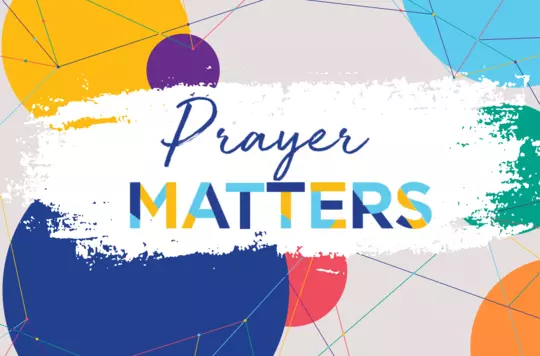6 September 2025
A theological reflection on Safeguarding
Commissioner Keith Banks

Commissioner Keith Banks reflects on safeguarding in Scripture.
Readers of a certain age may recall a time when many corps in the territory had a weekly company meeting – that was the Salvation Army term for the afternoon Sunday school. Children would sit in groups, or companies, according to age, and each group would have an adult assigned to sit with them and teach the Bible lesson. This company guard was charged with a duty of care for each child in their company – checking on them when absent, visiting when sick and showing week-by-week concern for their general wellbeing. The principle of this inspired concept of care has not been forgotten.
The Army has a well-established emphasis on safeguarding, and many have undertaken training to help ensure the highest possible standards are maintained, not only in relation to children but to adults as well, particularly those who present with specific needs.
Why is safeguarding taken so seriously? Safeguarding as a moral, ethical and lawful requirement is set in stone, and people of all faiths and none are bound to observe those requirements. But as Christians, we meet these requirements with an added dimension because we know the safeguarding nature of God the Father through the caring love of Jesus the Son.
In the Bible, there are a number of scriptural images that clearly teach us that God cares about us and is our eternal safeguard.
In Psalm 59:16 and 17, we are told that our caring God demonstrates his love for us by being a fortress, providing safety and refuge: ‘For you are my fortress, my refuge in times of trouble.’
Psalm 18:30 tells us that he is ‘a shield for all those who take refuge in him’ (English Standard Version); for centuries a shield has been a basic and necessary means of protection from danger.
Psalm 18:2 is one of a number of verses that describe God as our rock, further suggesting safety and security.
By contrast, Psalm 91:4 provides a gentler image, likening God to a bird who covers us with their feathers so that under their wings we are safe.
Each of these images, and there are many more, serves as a window into God’s caring, safeguarding nature. Scripture provides us with numerous examples of individuals who proved it to be true. Think of Moses, Joseph and Daniel in the Old Testament, and Peter and Paul in the New Testament. The apostle Paul, a man who had endured false imprisonment, shipwreck and persecution, knew all about the safeguarding nature of God. Peter summed it up perfectly: ‘Cast all your anxiety on him because he cares for you’ (1 Peter 5:7).
Jesus himself knew the safeguarding nature of God through the Scripture he would have been taught as a boy and, of course, through his relationship with his Father. He also knew that the best way to prove it was the way he lived it out.
When we look at the three years of Jesus’ ministry, we see how he, as ‘the image of the invisible God’ (Colossians 1:15), so clearly demonstrated his Father’s loving, safeguarding nature.
When he met a man with leprosy, who was shunned and treated in a degrading way by everyone he met, Jesus reached out (see Mark 1:40–45). When the religious people of the day brought a woman to him accused of adultery, Jesus protected her by acting in a way that distanced himself from her accusers, with carefully chosen words and a forgiving spirit (see John 8:1–11). To settle a dispute about greatness, Jesus called a child to his side to illustrate what greatness is. He then showed his love and protection for children, with some harsh words for anyone who would harm their innocence (see Matthew 18:1–6).
Proverbs 31:8 says: ‘Speak up for those who cannot speak for themselves, for the rights of all who are destitute.’ Jesus did this. He was the living embodiment of his Father’s love.
With the aid of the Holy Spirit, may we care for people like Jesus did, building safe communities of care and compassion, in a way that merges understanding, responsibility and privilege into a sacred trust.
Pray the Safeguarding Prayer
Loving God,
We share our world with over eight billion people – that’s a number to challenge the mind and is so hard to grasp. Yet your word teaches us that you care for every single one, and Jesus tells us you care so deeply that even the hairs on our head are numbered. It is hard to comprehend, yet we believe it is true.
We know that as followers of Jesus, you want us to care for people like you do. You need us to be agents of care to those with whom we interact at home, at work and at church – everywhere. It’s not humanly possible for us to care for billions like you do, God, and we know you understand that, but we know you want us to care for those people we meet regularly and often, and to act responsibly towards them.
So dear God, help us to create a climate of care through our actions and interactions with our fellow human beings – those we meet often and those we hardly know; children and adults of every age and culture, the vulnerable, the lonely, those who feel excluded, and marginalised. May we not only care for them, but also lovingly and intentionally watch over their safety. Guide us and help us to act responsibly as their guard and protector.
Dear God, your word teaches us that all are precious in your sight. Everyone is precious to you.
Mould our hearts so that all are precious to us too.
In Jesus’ name, and for his sake, we pray.
Amen.
Written by

Commissioner Keith Banks
Discover more

Dean Juster introduces the territory’s updated Safeguarding materials to help us all protect children and adults.

Supporting all Salvation Army personnel to provide good and safe programmes.

